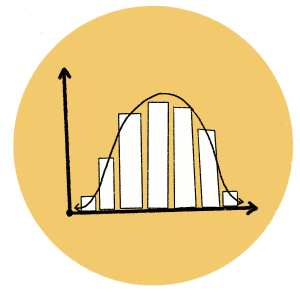Featured

Career Opportunities EXECUTIVE ASSISTANT (24-month contract) Position Description: The Higher Education Quality Council of Ontario (HEQCO) is an agency of the Ontario government which brings evidence-based research to the continued improvement of the province’s postsecondary education system. HEQCO is looking for an executive assistant (24-month contract) to provide executive services and support to the president […]
Updated guide offers advice on improving the quality of WIL for all learners Effective and Inclusive Practices to Enhance the Educational Quality of Structured Work Experiences Offered through Colleges and Universities Work-integrated learning (WIL) experiences such as internships, placements, co-ops, field experiences, professional practice and clinical practicums continue to be an integral part of the […]

How many Ontario students applied to the province’s colleges and universities during the last decade? How many enrolled? How many graduated? Find the answers to these and other good questions in Quick Stats, a compendium of data on Ontario’s postsecondary system. Note: All visualizations begin in 2013 and go up to the most recent year […]
Latest
The Impact of School Closures and Emergency Remote Learning on Grade 12 Students in Spring 2020: Preliminary Findings from Toronto was written by Kelly Gallagher-Mackay and Robert S. Brown in collaboration with the research department of the Toronto District School Board. New TDSB data provides first look into student outcomes during emergency remote learning Despite […]
The densely urbanized areas of southern Ontario — particularly the Greater Toronto Area (GTA) and Ottawa — attract a disproportionate number of people with more advanced educational credentials. This matters because this demographic group provides numerous advantages to communities, such as greater financial resources and key skills needed for modern technologies. While this is real […]
The phrase “people with disabilities” describes a wide variety of individuals including those with physical, learning, mental health, hearing and vision disabilities. Recognizing the diversity of disability is crucial to understanding each individual’s unique lived experience. It is important to understand the impact of systemic barriers faced by people with differing disabilities in order to […]
The long-term economic impact of the COVID-19 pandemic is worsening inequality in Canada and is a growing concern for citizens and policy-makers. This manifestation of inequality has been referred to as the ‘K-shaped economic recovery,’ a term which describes the bifurcated outcomes that are largely positive for highly educated and high-income earners, and largely negative for lower-income workers with fewer educational credentials. There […]
Postsecondary Credential Attainment and Labour Market Outcomes for Ontario Students with Disabilities was written by Ken Chatoor, Higher Education Quality Council of Ontario. Students with disabilities do not receive the same benefits from postsecondary education as other students Students with disabilities experience barriers at each stage of their path through postsecondary education (PSE) and into […]
The term work-integrated learning (WIL) refers to a range of experiences including apprenticeships, field placements, co-op programs and internships. Some WIL experiences may be a required part of an academic program while others may be a transitional experience either from academic life to the workforce or from one level of schooling to another. Thanks to […]






